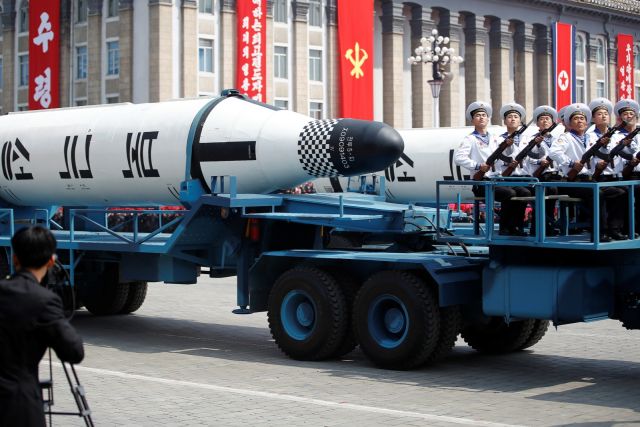A senior North Korean official has stated that his country will continue to test missiles in spite of worldwide condemnation.
“We’ll be conducting more missile tests on a weekly, monthly and yearly basis,” Vice Foreign Minister Han Song-Ryol told the BBC’s John Sudworth in Pyongyang.
An “all-out war” would be the result of the continuing military tensions with the US and warned North America about being “reckless enough to use military means”.
US Vice-President Mike Pence had said earlier that his country’s “era of strategic patience” with North Korea was over. “North Korea would do well not to test his resolve or the strength of the armed forces of the United States in this region,” he added.
In a CBS interview on Friday (14 April), Song-Ryol said that North Korea would use a nuclear weapon against the United States. “If the U.S. comes up with a dangerous military option, then the first card is in our hands, then we’ll deal with it with our pre-emptive strike,” he said. “This means war.”
The North Korean Vice Foreign Minister has blamed US President Trump for his bullish tweets.
According to an AP report, the fraught situation on the Korean Peninsula is now in a “vicious cycle,” Song-Ryol said.
At a news conference at the UN on Monday, North Korea’s permanent representative Ambassador Kim In-ryong, condemned the US missile strikes in Syria, which targeted an air base after a suspected chemical attack by the government.
He said the US was “disturbing global peace and stability and insisting on [a] gangster-like logic”.
North Korea’s aim is to attach a nuclear warhead on a ballistic missile capable of reaching targets thousands of miles away. The country has conducted five nuclear tests and a number of missile launches in contravention of UN resolutions over the past few years.
The US Pacific Command confirmed the failed test had taken place on Saturday (16 April), with officials saying a missile had exploded within seconds of the launch.
Former Conservative Foreign Secretary Sir Malcolm Rifkind told the BBC: “It could have failed because the system is not competent enough to make it work, but there is a very strong belief that the US – through cyber methods – has been successful on several occasions in interrupting these sorts of tests and making them fail.”















